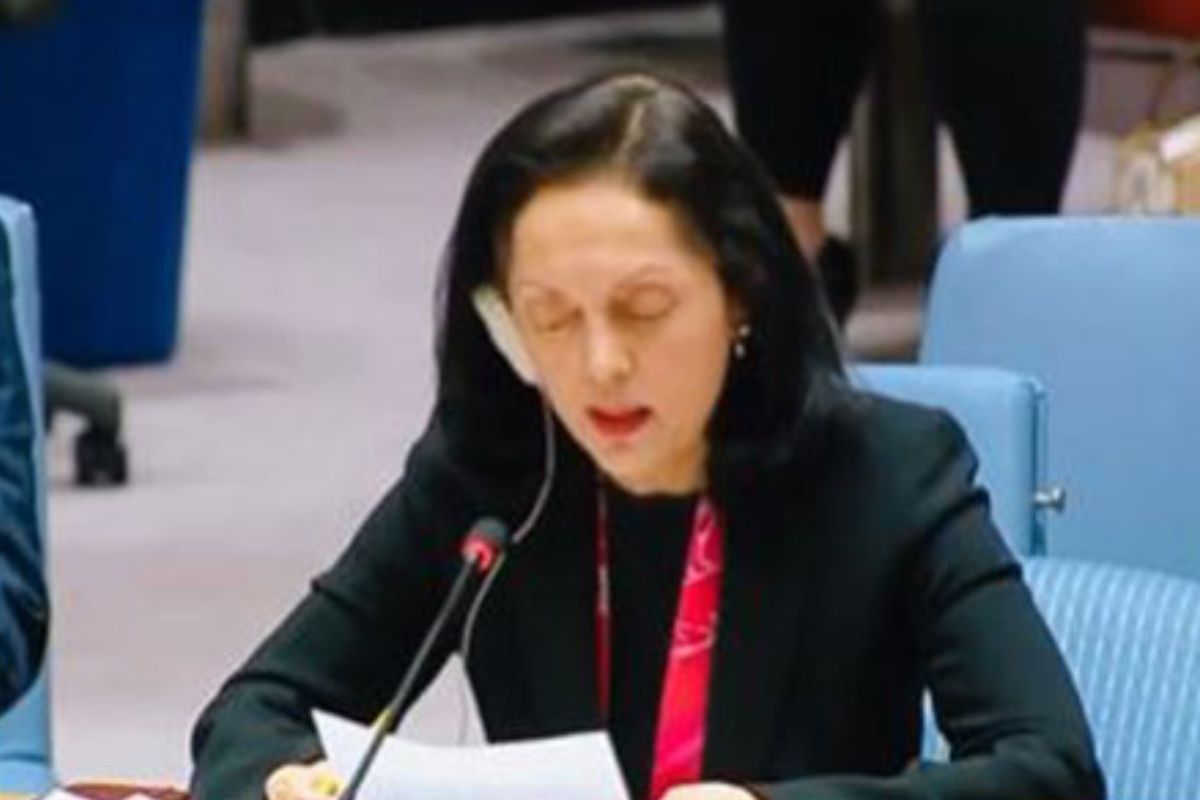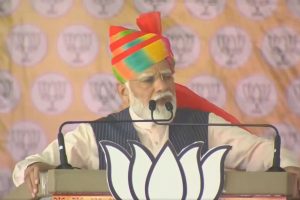In a veiled attack on Pakistan, India has called on the international community to condemn cross border supply of illicit weapons using drones.
“We are facing a serious challenge of cross-border supply of illicit weapons using drones, which cannot be possible without active support from the authorities in control of those territories,” India’s Permanent Representative Ruchira Kamboj told the United Nations Security Council on Monday. “The international community should condemn such behaviour and hold such states accountable for their misdeeds,” Kamboj said.
Kamboj was speaking during UNSC Open Debate on “Threats to International Peace and Security: Risks Stemming from Violations of Agreements Regulating the Exports of Weapons and Military Equipments.”
Indian security forces guarding the international border in Punjab and Jammu and Kashmir have been witnessing many attempts at infringing on Indian air space in the recent past through drones originating in Pakistan and which carry weapons and arms.
According to officials, the trans-border drone activities are observed from time to time mainly in Punjab’s Amritsar and Kathua, Samba and Doda in Jammu and Kashmir.
On December 21, last year BSF troops shot down a drone that had entered Indian air space from Daoke Border Outpost (BoP) in the Amritsar sector from the Pakistan side on the International Border.
Meanwhile, speaking at the 15-member Security Council’s Open Debate, which was convened by the Russian Federation, which is the president of the Council for this month Kamboj said. India has “strong and effective” national export controls governing the transfer of conventional weapons which comply with international standards.
Kamboj said India remains committed to preventing the illegal transfer of conventional weapons.
She further said, “India has undertaken robust national efforts through appropriate legal and regulatory frameworks to address conventional ammunition management from the point of manufacture until its disposal or use. With our longstanding commitment to global non-proliferation, we have established a strong legal and regulatory system in India to implement the provisions of Resolution 1540 and our other international obligations.”
She stressed that illicit transfer and illegal diversion of arms, including conventional arms and ammunitions, Small Arms and Light Weapons (SALW) and Weapons of Mass Destruction (WMD), their delivery systems and related materials to non-state actors, including armed and terrorist groups, pose threats to international peace and security.
Kamboj noted that the unravelling of the global disarmament architecture and landmark arms control agreements raise concerns regarding the edifice built over several decades and the uncertainties ahead. She said that the export of weapons and military equipment and international law could not be ignored.
“The export of weapons and military equipment in violation of international law, exacerbating geo-political tensions, cannot be ignored,” Ruchira Kamboj said.
“All signatories, parties and members of international instruments, treaties and organizations on disarmament, arms control, and non-proliferation of WMD, their delivery systems and related materials, equipment, and technology, must strive to fulfill their obligations in a transparent manner,” she added.
Kamboj said that these threats multiply when certain states with dubious proliferation credentials collude with terrorists and other non-state actors. She further said that rise in the volume of arms acquired by terrorists demonstrates that they cannot exist without the support of states.
“The quantum of these threats multiplies when certain states with dubious proliferation credentials, in view of their masked proliferation networks and deceptive procurement practices of sensitive goods and technologies, collude with terrorists and other non-state actors,” Kamboj said.
“For example, the rise in volume and the quality of the small arms acquired by terrorist organizations remind us time and again that they cannot exist without the sponsorship or support of States,” she added.
She stated that India has been consistent in stressing the importance of addressing the rapid evolution of proliferation risks due to new and emerging technologies, particularly access to WMDs, equipment and technology by terrorist groups and other non-state actors.











